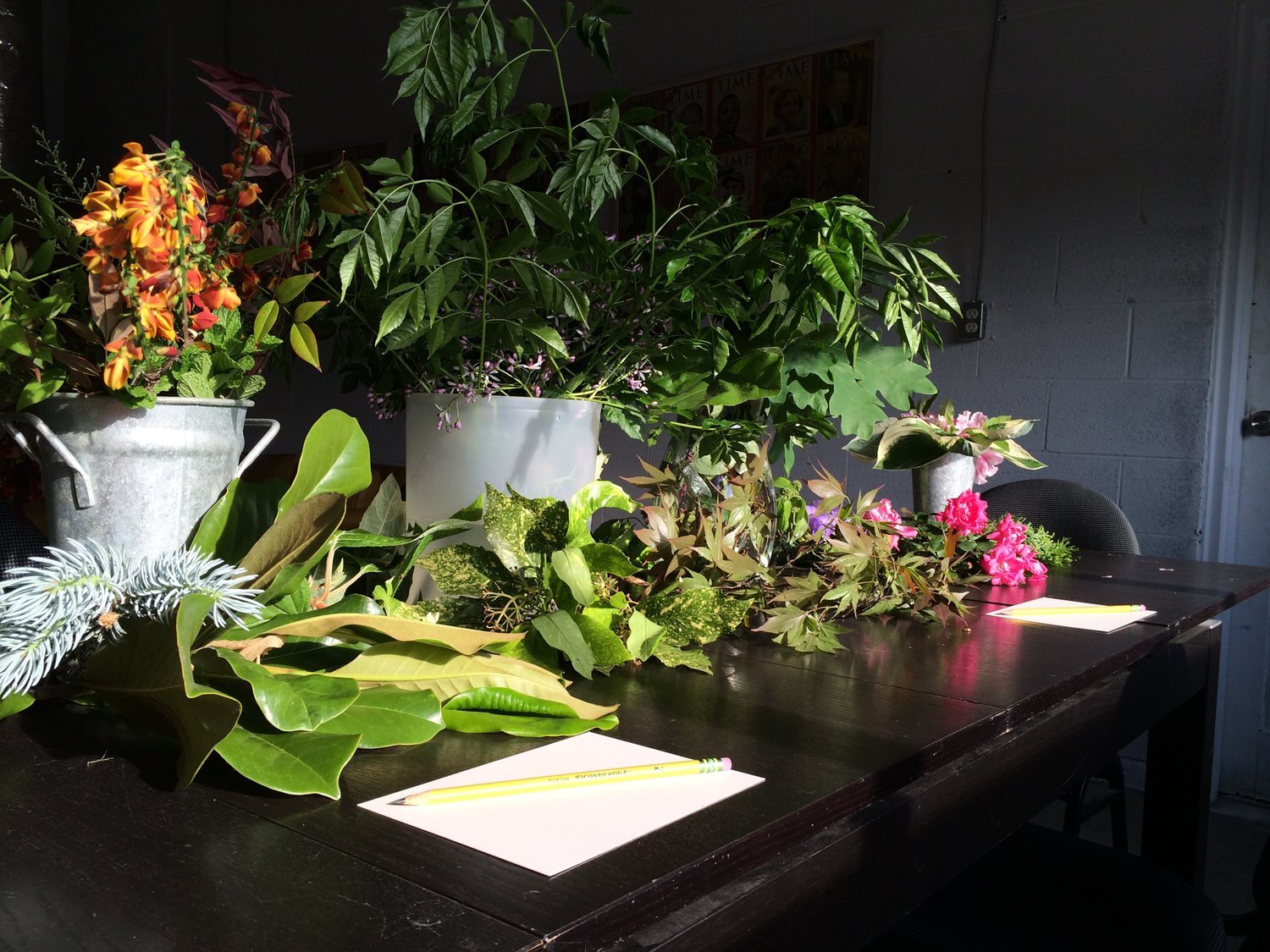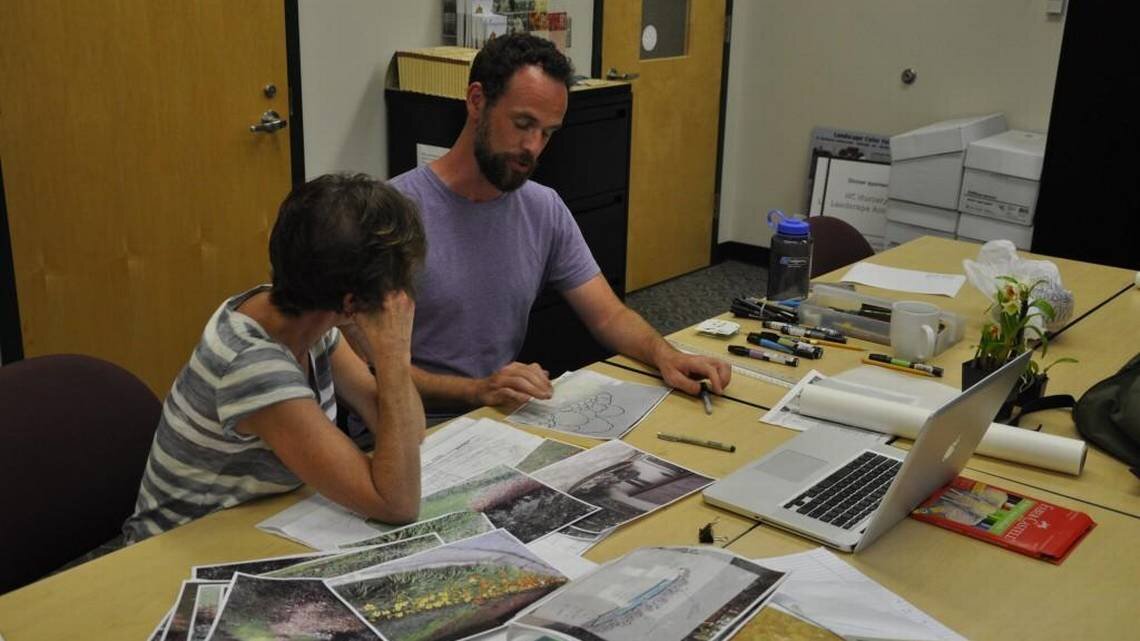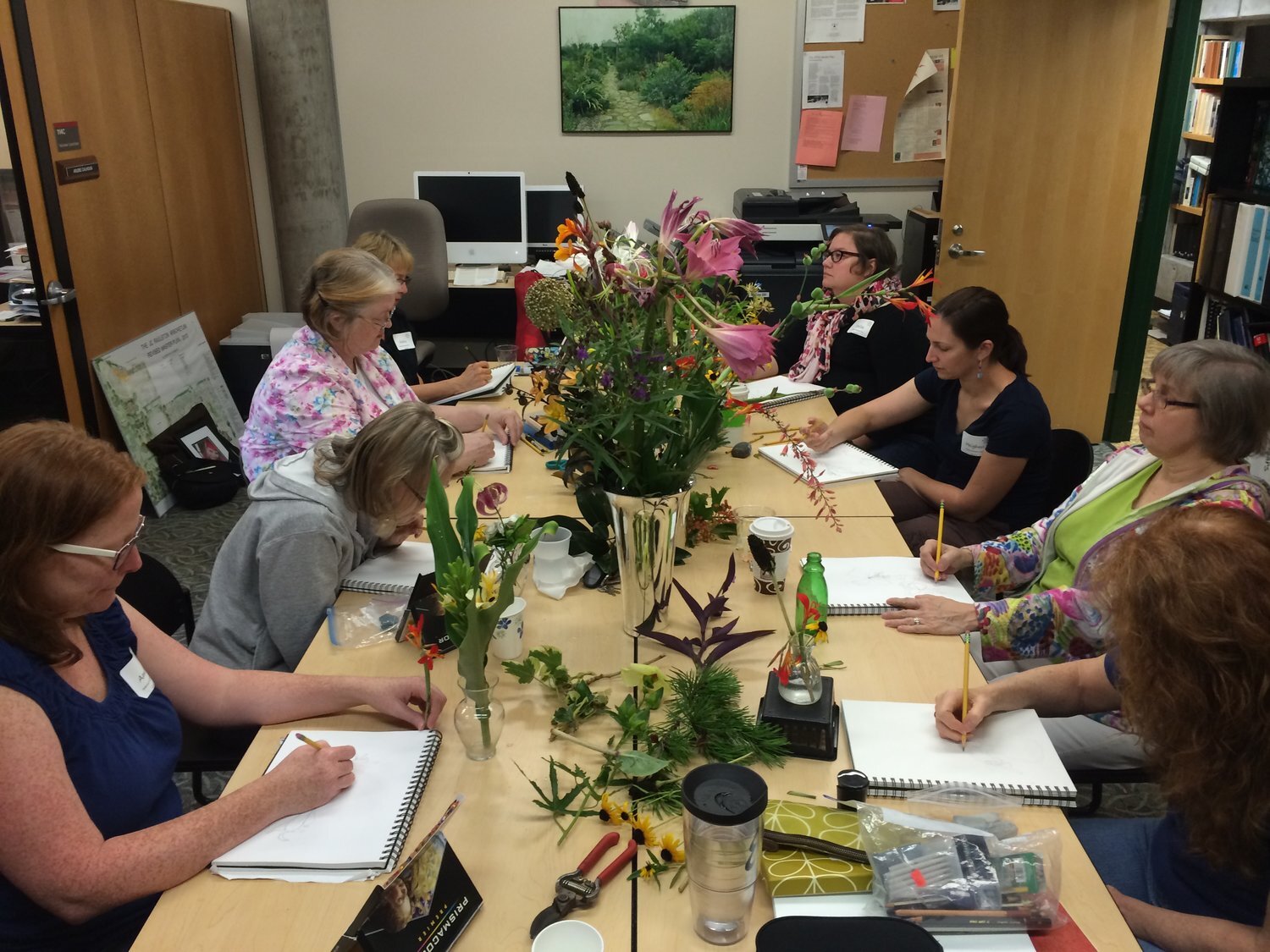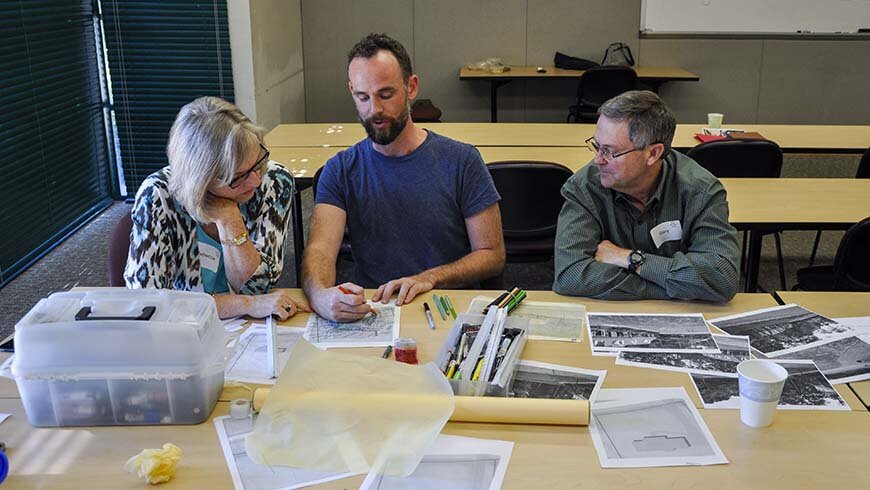Preston is joined by students of landscape architecture at North Carolina A&T University in Greensboro, North Carolina where he teaches classes on ecological landscape design and preparing for professional practice.
“Drawing is a powerful tool for understanding and communicating nature’s design”
Learning to Draw
Learning to draw, particularly en plein air, gives us the ability to better understand the world around us, as well as providing a creative outlet that encourages a sense of achievement, balance, and self-worth. Whether the goal is learning to draw as a therapeutic activity, developing visual communication skills, or exploring the world, Preston provides courses for beginning and advanced students that can be tailored to suit your program.
The Nature Of Drawing
Botanical illustration is a powerful tool for understanding and communicating nature‘s design. Whether for scientific exploration, self-expression, or both, botanical illustration provides an opportunity to document those moments in nature that inspire us.
Drawing in Nature introduces participants to the basic observation and drawing techniques used by professional artists. Designed for enthusiasts with little to no artistic training, this series focuses on foundation skills in pencil, pen, and colored pencil to create accurate and beautiful botanical illustrations.
Course options:
I. Introduction to Botanical Illustration
II. Botanical Illustration with Pencil and Pen
III. Botanical Illustration with Colored Pencil
IV. Naturally Creative! (youth specific)
Landscape Potential
Consider the performance of your home landscape. Would you describe it as a fit, functional work of art that reflects your lifestyle and encourages outdoor activity?
Landscape potential is a lecture series exploring topics in landscape design specifically targeting residential clients. Following each lecture is a series of practicums where participants bring their landscape challenges to a pop-up studio environment and have one hour to work with me to develop a design solution. Typically participants find this to be a therapeutic, but intense experience. Ultimately, the point of the series is to introduce participants to basic approaches in landscape design so that they may resolve their own design challenges in their home landscape.
Course options:
I. Approaches to Design
II. Perennial Bed Design for Pollinators
III. Designing for Songbirds with Shrubs and Trees
IV. Improving Curb Appeal through Foundation Planting
V. Slim and Trim Plants for Small Spaces
VI. Translating Natural Habitats into Landscape Design






